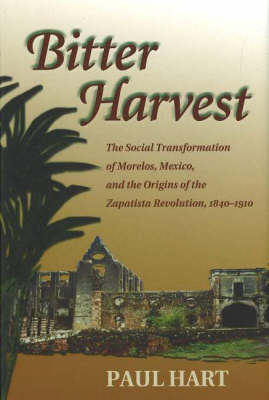Between 1910 and 1919, Morelos, Mexico, was home to a bloody agrarian revolution that saw government troops burn villages, cities stand abandoned, and two of every five people either flee the fighting or die in it. The conflict came in response to an intense economic transformation that changed the region's peasant economy into the hub of the Mexican sugar industry during the nineteenth century. By focusing on the creation of the rural working class in Morelos, 'Bitter Harvest' argues that developments there reflected a broader pattern shared with other parts of Mexico that erupted in revolution. The volatile nature of the sugar industry in Morelos, and the silver and cattle industries of the North, exacerbated the social problems created by an exclusionary political regime. Soon, displaced peasants, small farmers, disgruntled ranch hands, and unemployed miners joined Francisco Villa in northern Mexico, while peasants, farmers, and sugar workers rallied around the leadership of Emiliano Zapata in Morelos. When President Porfirio Diaz and the revolutionary leaders that came after him resisted the call for deep social change, turmoil engulfed much of the nation for the next decade.
In the end, the Zapatistas were defeated militarily, yet they still forced major concessions out of the national government, which helped shape Mexican society for the rest of the twentieth century.
- ISBN10 0826336639
- ISBN13 9780826336637
- Publish Date 1 December 2005
- Publish Status Active
- Publish Country US
- Imprint University of New Mexico Press
- Format Hardcover
- Pages 291
- Language English
